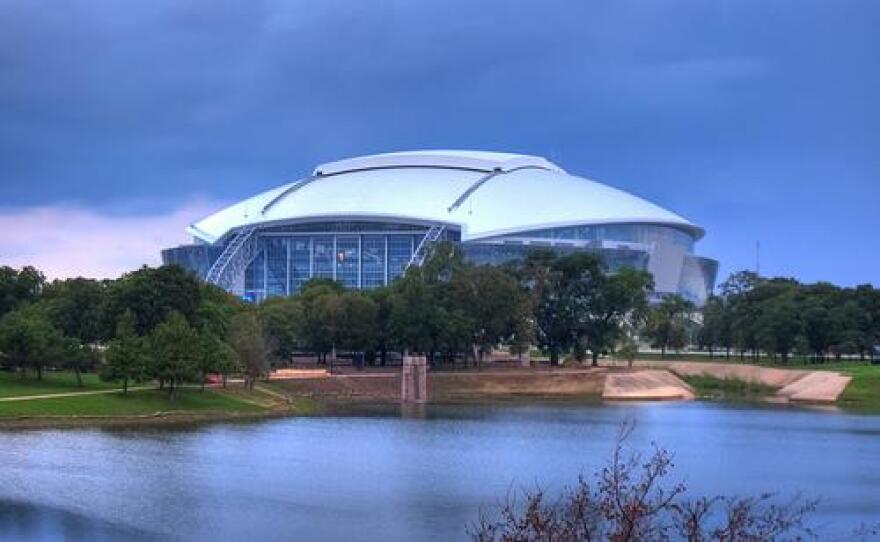Backers boast that tonight’s College Football Championship game in Arlington will bring in as much as half a billion dollars to North Texas. We heard similar numbers about last April’s Final Four. And four years ago, the impact of the Super Bowl was estimated as high as $611 million. But are those sky-high estimates grounded in reality?
The Texas Comptroller’s Office says the game at AT&T Stadium in Arlington will bring in $308 million. An April study from UHY Advisors of Dallas said $523 million. That’s almost to Super Bowl levels.
“And I want to think it’s going to be as big, but probably not,” Arlington Mayor Robert Cluck says.
He’ll happily take it anyway.
“It’ll be good for all the cities here,” Cluck says. “Dallas, Fort Worth, Arlington, the Mid-Cities. Thousands of people, a lot of hotel rooms will be rented, a lot of products sold. Our vendors, our restaurant owners, will do extremely well.”
Experts who study these big events say the big games bring in tens of thousands of visitors who spend hundreds, and even thousands, of dollars on tickets, hotel rooms, food, souvenirs and travel.
Rob Baade, an economics professor at Wake Forest in North Carolina, studies Super Bowls, college tournaments and other mega sports events. He says the numbers are routinely inflated.
“It’s a significant magnitude of embellishment; I’ll be kind here,” Baade says.
How much of an embellishment? Victor Matheson, a professor at Holy Cross in Massachusetts, says there’s a rule of thumb economists like him follow.
“Take whatever the boosters tell you and then just move the decimal point one space to the left and that’s what you’ll get out,” Matheson says.
So that $611 million promise for the Super Bowl in Arlington?
“We usually can find a spike,” Matheson says. “But people who’ve looked back at past Super Bowls, we usually see a bump somewhere between $130 million [and] as low as $30 million. So [it's] nothing the city should turn down, but it’s also a fraction of that $600 million figure that was touted for Dallas a few years ago for their Super Bowl.”
Matheson says a few factors are routinely overlooked in economic impact studies.
For example, spending by local folks attending the game gets counted, but they might have spent money locally anyway on something else. Then there’s what Matheson calls "leakage."
“The hotel rooms are going to be two or three times their normal rate. But you’re not going to increase the wages of your desk clerks or room cleaners by two or three times,” Matheson says. “So all that money goes to corporate profits. And that all goes back to corporate headquarters in New York City. It doesn’t stay in the host city.”
Cluck, the Arlington mayor, says more than enough does however.
“We have the facts,” Cluck says. “We know how much money flowed in for the Super Bowl. We will know also for the championship game. You can’t refute those. Those are just facts.”
Cluck says event income’s been so good – from blowout sports contests to big concerts -- that nearly one-third of Arlington’s $325 million debt, its share of the stadium, has already been paid. That’s ahead of schedule on the 30-year note.



